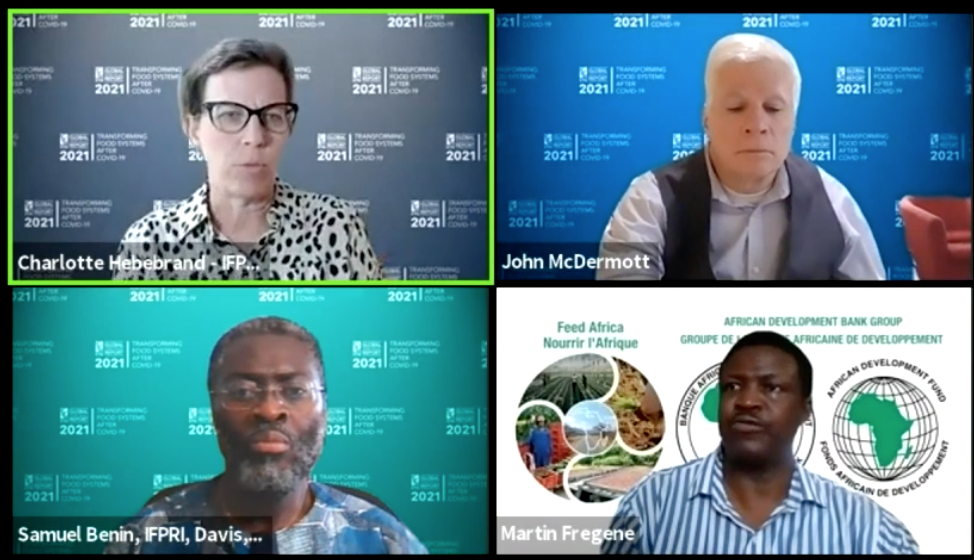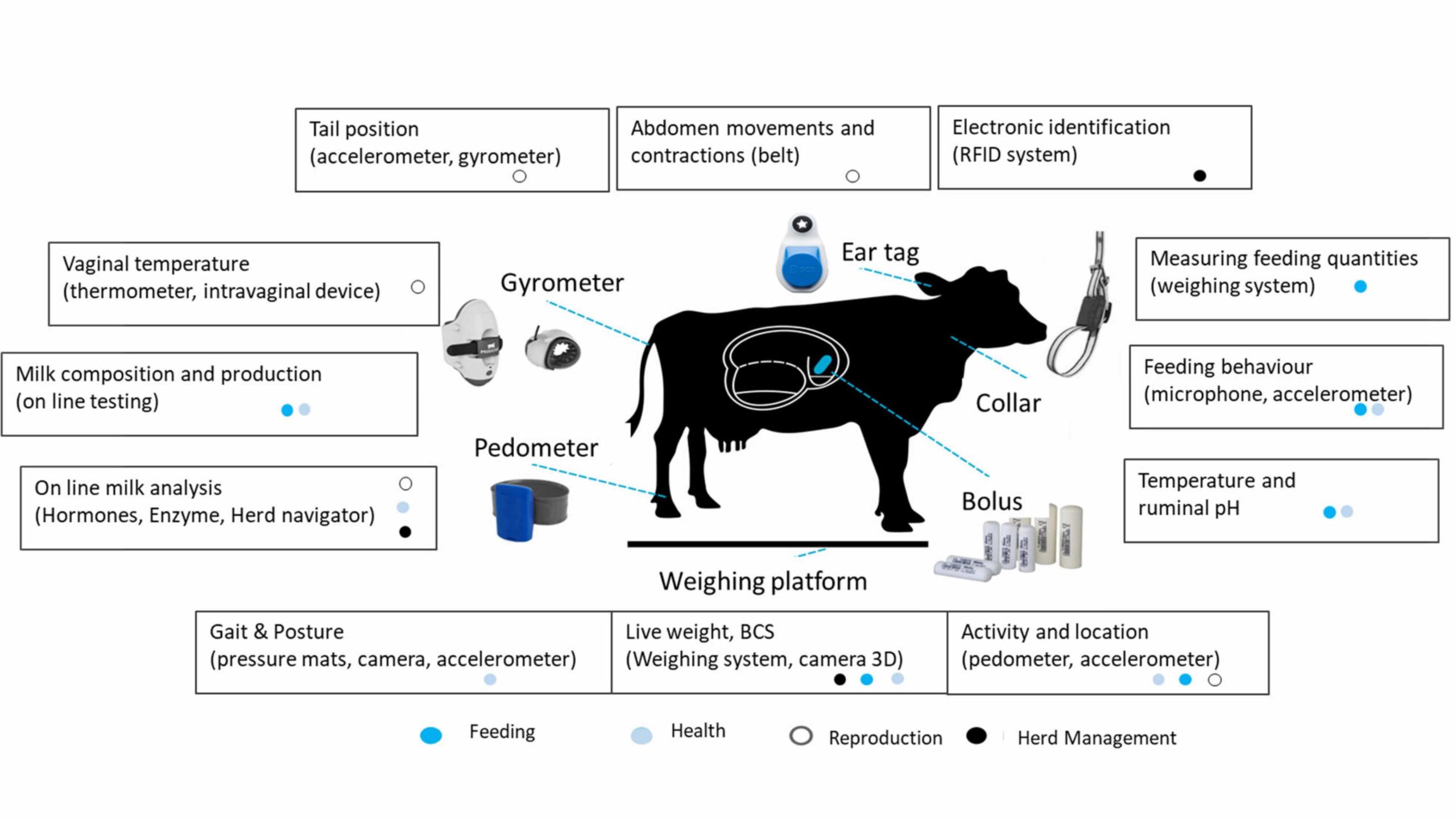The COVID-19 pandemic has had significant impacts on public health, economic growth, and livelihoods in Africa—though these have thus far been less severe compared to other regions. A May 10 virtual Africa discussion of IFPRI’s Global Food Policy report explored these effects. IFPRI researchers, along with and experts from government and regional partners, presented the report’s key findings and proposed solutions for improving the post-pandemic resilience of the economies of African countries.
”On health and nutrition, the pandemic has created a lot of inequality and weakness in our food systems, and it reminds us of the vulnerability of poor people. I know, we are further off track to meeting the Sustainable Development Goals in 2030,” IFPRI Director for Africa Jemimah Njuki said in her opening remarks.
IFPRI Director General Johan Swinnen, said the report shows that “a lot of effort has been put into reducing poverty, hunger and climate change effects over the past decades. COVID-19 has also had impacts on health and nutrition. There have been disruptions in the food value chains that are felt in poor countries leading to economic decline.”
But, according to John McDermott, Director of the CGIAR Research Program on Agriculture for Nutrition and Health (A4NH), in the context of the pandemic, there is “a lot of optimism in 2021 regarding GDP growth.”
Why have the pandemic’s impacts on public health in Africa been relatively less harsh than elsewhere? “The main reasons are related to the youth of its population, and it is relatively warmer,” said IFPRI Deputy Africa Director Samuel Benin, reviewing the report’s findings on Africa.
Within the continent, the pandemic has hit North Africa and Southern Africa harder than other regions, he said, especially countries with high connectivity with other counties such as Egypt and South Africa. The COVID-19 vaccination rate is also low compared to other parts of the world, he noted. But “many countries have implemented policies to reduce the impact of the pandemic by assisting vulnerable households and businesses,” he said.
Younoussa Mballo, Technical Advisor and Coordinator of the PROVALE-CV project at the Senegal Ministry of Agriculture and Rural Equipment, said the pandemic has had an impact on agriculture, particularly horticulture, as well as on livestock following the closure of weekly markets. He indicated that the government has put in place a resilience program, increasing the budget of its rural ministry by 50%, to 60 billion CFA francs ($112 million).
Mohamed El Kersh of the Egypt Ministry of Agriculture said that the pandemic has created a decline in international trade, especially in many countries dependent on the import of agricultural products and raw materials. This has had an impact on the agricultural sector, and especially on small farmers, he said. “In Egypt we have tried to find solutions in terms of connection to ease mobility,” he explained.
“I support this digital transformation to reduce the impact on the agricultural sector,” he said.
Martin Fregene, African Development Bank (AfDB) Director of Agriculture and Agribusiness, explained that the WFP has published a report on April showing that 20 countries in Africa face greater food insecurity due to the pandemic.
During a recent AfDB meeting on how COVID-19 and recent natural disasters have impacted Africa, participants decided that countries should take action to help Africa rebuild and be more resilient post pandemic, he said.
The AfDB plans to launch a farmer support program soon at the upcoming UN Food Systems Summit and pledged to give more than $2 billion to accelerate growth and foster food security in Africa.
“I am here to ensure that African countries can set goals and assemble partners, but also have a roadmap, in terms of food technology, while ensuring that accountability and responsibility are a key word. We all know that the world is a community and Africa cannot be left behind,” he said.
Chris Nikoi, World Food Program Regional Director for West Africa, warned that the risk of heightened food insecurity now threatens 31 million people in Africa, 150 times greater than in 2019.
Vulnerable populations have been disproportionately affected, he noted: There has been ”a sharp increase in prices and low income for them, especially [in] Liberia and Sierra Leone”.
Countries should strengthen resilience and response to shocks by investing in early warning systems, he said, and also to support local small and medium enterprises in terms of investment, develop social protection networks, support agricultural policy efforts, and coordinate actions effectively.
In the Q&A session, panelists advised following the science on public health, including the continuation of sanitary measures while waiting for access to vaccines, and strengthening economic resilience by promoting investment through an enabling environment.
Sokhna Sall Seck is a Communications Specialist with IFPRI’s West and Central Africa Regional Office (WCAO) in Dakar.







